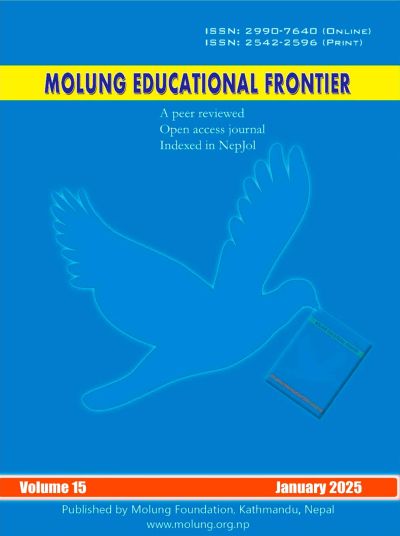Impact of Climate Change on Agro-based Farming and Rural Farmers' Livelihoods: A Study of Balakhu, Okhaldhunga
DOI:
https://doi.org/10.3126/mef.v15i01.74010Keywords:
adaptive strategies, agro-based farming, Balakhu, climate change, livelihoodAbstract
This research examined the impact of climate change on agro-industries and rural farmers' livelihoods in Balakhu, Okhaldhunga, where agricultural systems have been severely disrupted, and extremely affecting smallholder farmers. The study explored the livelihood strategies adopted by farmers and examined the impact of climate change on agro-based farming and livelihoods in Balakhu. The study used a descriptive design and qualitative methods. Purposeful sampling ensured diverse farming contexts, with data collected from 188 participants using unstructured questionnaires and observations, while secondary data were gathered through literature reviews and document analysis. The data were analyzed using MS Excel for quantitative insights and narrative analysis for qualitative responses. The findings revealed that rising temperatures, irregular rainfall, and water scarcity have reduced crop yields and stressed livestock, while frequent floods, soil erosion, and pest outbreaks have further compounded the challenges. Seasonal shifts have disrupted planting and harvesting cycles, forcing farmers to transition to resource-intensive alternative crops. These challenges highlight the urgent need for adaptive strategies such as climate-resilient crops, improved irrigation systems, and sustainable land management practices. The study concludes that climate change significantly affects agriculture, rainfall patterns, and temperatures, posing a serious threat to livelihoods in the region.
Downloads
Downloads
Published
How to Cite
Issue
Section
License
© Molung Foundation




